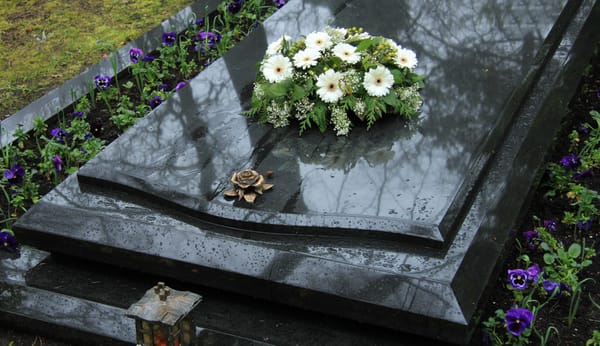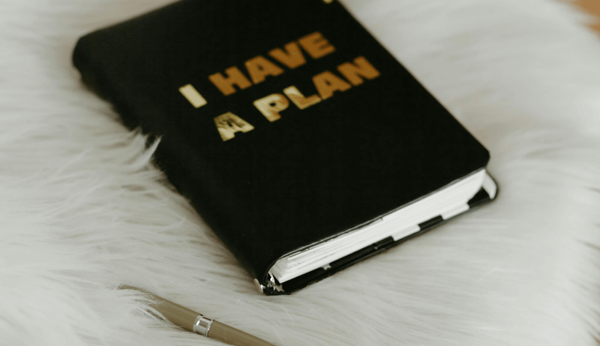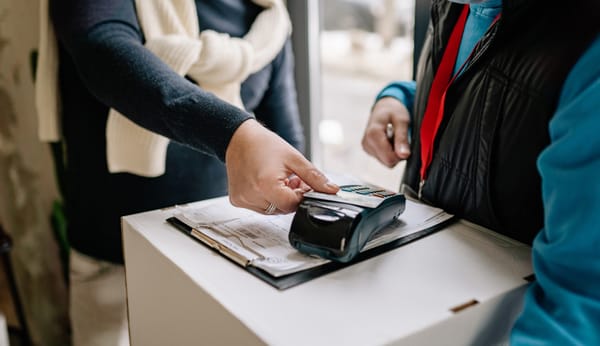I consider myself very lucky to have parents that love to travel. My mom and dad both met on a ship from Europe to South Africa and connected over their passion for adventure – and luckily, they passed this wanderlust over to me.
Every month, I save up money into a dedicated holiday fund so that every three years I can take a month out of my year to go to a new destination (or two, or three – squeezing out all the goodness from those pricey air tickets). During that month, I splurge: doing all the activities to really get a sense of the destination, eating at the best-recommended restaurants, and sleeping comfortably.
If you’re also bitten by the travel bug, firstly: condolences to your bank account. But rest assured: I’ve worked together with friend of Franc Aron Samuels, who is a financial coach, speaker and founder of The Wealth Coach, to pull together a step-by-step guide to how to budget for a holiday, plus a few holiday spending tips and a handy holiday budget template. Hopefully we’ll have you saving up and jetsetting around the world in no time.
Step 1: Set Up a Dedicated Holiday Fund
Like I said, I’ve made it a (good) habit to put away money regularly for my sabbatical every three years. Most of the time, I don’t even know where I’m going to go or what I want to do, but I always know that I have a stash growing for when I do decide.
It’s a good idea to build your holiday fund, like any short-term investment goal (which is anything less than 3 years), in a low-risk, interest-accruing investment, like a money market fund, where it can grow with every deposit you put in, and then some. For example, if you were to invest R500 into your holiday savings in the cash fund on the Franc app over 3 years, you’d benefit from an estimated R2,182.68 interest earned on top of the money you put in.
The Franc app is goal-based, which makes it easy to set up a targeted holiday fund. Here’s how:
- Create a new goal for your holiday. I’ve learnt the hard way: don't mix your holiday savings with your emergency fund or retirement investment. Create a new goal on your portfolio dashboard, and choose a Holiday goal. Bonus points for uploading a picture of your dream destination to visualise it.
- Opt to invest towards a target. Set the target amount you'll need for your holiday, and the app will help you work out your recommended weekly or monthly deposit to reach it. If you’re just wanting to build up a holiday fund for a non-defined trip in the future, choose an “invest regularly” setup.
- Lock your goal until your holiday or booking dates. We know it's scary, but your holiday self will thank you! To lock your goal, navigate to your goal dashboard and click on Edit > Lock Goal. You’ll still be able to access the funds if you really need them, but you’ll pay a charge of R50 fee (R30 of which goes into a community prize pot to reward some who keep their goals locked).
Step 2: Work out a holiday budget
As you edge closer to your holiday trip and start to decide where you want to go, what you want to do, and how much you need, it’s a good idea to put together a budget.
According to Aron, “Creating a realistic budget is one of the first steps in making your getaway a reality. It helps you make sure that your trip doesn't start and end in the WhatsApp group.”
Here's a breakdown of what your holiday budget should include:
- Transport. If you’re flying to your destination, it would be a good idea to book your tickets as far in advance as possible. Look for an option (if it's not too much more) which allows you to change your flight time to make provision for unexpected changes in your plans. Look into discounts through any loyalty programs which your bank or insurance company might offer. If you are travelling by car, be sure to take into account what your fuel expenditure might be as you plan your route.
- Accommodation. When it comes to your accommodation, you first need to decide what type of accommodation you are looking for. Whether you are looking for a hotel, BnB or a self catering house or apartment, make sure to consider a number of options and research potential places well. Prior to booking, make 100% sure what the full cost will be and if any additional cost will be added such as service or cleaning fees.
- Meals. If you're looking to eat out for lunch or dinner during your holiday, be sure to research the restaurants in the area in advance. Get an idea of what the prices are like and budget accordingly. Decide how often you would like to go out and when you will be preparing your own food. Make sure to draw up a shopping list with expected costs ahead of your trip so that you can budget accordingly.
- Activities & Entertainment. Research the area you will be visiting and identify any activities you would like to do or tourist attractions you would like to visit. Where there are costs involved, make a note of this and add it to your planning. Make provision for spending money during your time out.
- Visas & Travel Documentation. If you're travelling abroad, make 100% sure what the costs associated with visas, travel insurance and other travel document expenses are. Be sure to make provision for this as part of your planning.
- Pre-Trip Expenses. A holiday sometimes requires a whole new wardrobe. When you're on holiday, you want to look the part, after all! Make sure you factor the cost of your holiday outfits into your budget.
- A Special Occasion. Going away for a birthday or anniversary? Make sure to take a gift and allocate this in your budget as well.
- A 'What If' Fund. Life happens, even when you're on holiday. Make sure to keep a few Rand aside for any emergencies or unexpected expenses. You don't want to be caught off guard.
📩 Download our free holiday budget planner
Step 3: Take your holiday budget one step at a time
Now that you know how much you need for the holiday trip of your dreams, it can be easy to get overwhelmed or despondent by the amount. But don’t; rather break down that big holiday goal into bite-sized, manageable pieces.
"By breaking down your total holiday budget into weekly savings targets, your goal becomes a step-by-step process,” says Aron. “This approach not only makes your holiday realistic – financially speaking – but it also empowers you with a structured plan which you can follow. As you see your savings grow, week by week or month by month, this will give you the mental boost to keep going and build the excitement till you've achieved your goal and reward yourself with an amazing holiday!"
Here are a few tips for breaking down your holiday savings into manageable pieces:
- Calculate your time horizon. The first step would be to decide on your dates and determine when you need to pay any deposits or upfront expenses for accommodation. You can then work out how many weeks you have to save up the amount.
- Work out your weekly savings goal. Let's say you've done the numbers and your trip will cost you about R8,000. Your dates have been decided and you know that you have 3 months (12 weeks) to save up. Take your total cost and divide it by the number of weeks. In this case, it will bring you to +-R 666 per week. You now know what minimum amount you need to save.
💡 Franc App Hack: Use the calculator. If you set up a new Holiday goal on the Franc app and opt to invest Towards a Target, our handy in-app goal calculator helps you work out your weekly amount.
- Keep price fluctuations in mind. Prices can vary and usually increase during peak times. Keep this in mind and save a bit extra to make provision for potential price increases between now and December. If you are travelling abroad, keep exchange rate fluctuations in mind and the fact that the value of your Rands will fluctuate over time.
- Prioritise the most crucial expenses. Prioritise saving for the core expenses of your trip first, such as your flights and accommodation, that need to be paid upfront. Those are the basics and once you've saved up enough for them, it will give you peace of mind and also encourage you to keep saving.
💡 Franc App Hack: Track your progress. If you chose a target Holiday goal, the Franc app makes it easy to keep track of your savings with our progress tracker. Check in on a regular basis to make sure that your savings are still in line with your budget.
See, not so impossible right? With the right amount of planning, some good saving and investment habits, and sticking to your plan, you’ll be jet-setting to your dream destination with financial peace of mind!


![How to budget for a holiday [+ vacation budget spreadsheet]](/blog/content/images/size/w2000/2023/10/How-to-budget-for-a-holiday--1-.png)



![The Guide To Provisional Tax In South Africa [+ downloadable provisional tax calculator]](/blog/content/images/size/w600/2025/09/calculating-your-provisional-tax.png)



